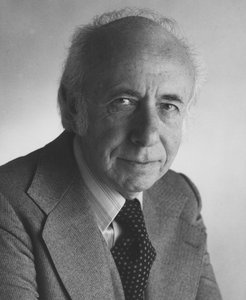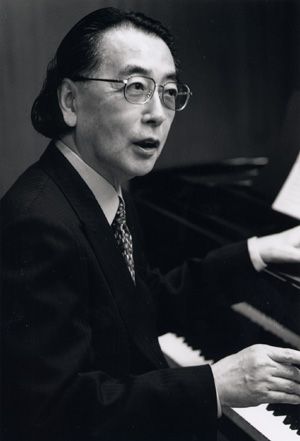
Fluxus was an international, interdisciplinary community of artists, composers, designers, and poets during the 1960s and 1970s who engaged in experimental art performances which emphasized the artistic process over the finished product. Fluxus is known for experimental contributions to different artistic media and disciplines and for generating new art forms. These art forms include intermedia, a term coined by Fluxus artist Dick Higgins; conceptual art, first developed by Henry Flynt, an artist contentiously associated with Fluxus; and video art, first pioneered by Nam June Paik and Wolf Vostell. Dutch gallerist and art critic Harry Ruhé describes Fluxus as "the most radical and experimental art movement of the sixties".

This is a list of notable events in music that took place in the year 1964.
Jerry Edward Hunt was an American composer who created works using live electronics partly controlled by his ritualistic performance techniques which were influenced by his interest in the occult. He was considered a pioneer of live, electronic and computer-aided audio and video. Hunt lived his entire life in Texas, living in a house he built himself on his family's ranchland. For Hunt, it was financially necessary to live in Texas, but almost impossible to create a career within the state. Hunt was often described as "hyperactive" and always on the move. He was also often either chewing on tobacco or chewing gum. He often dressed conservatively, in a suit or button-up shirt and tie. He was said to have a "wicked sense of humor."
Robert Nathan Sheff, known professionally as "Blue" Gene Tyranny, was an American avant-garde composer and pianist.
George Rochberg was an American composer of contemporary classical music. Long a serial composer, Rochberg abandoned the practice following the death of his teenage son in 1964; he claimed this compositional technique had proved inadequate to express his grief and had found it empty of expressive intent. By the 1970s, Rochberg's use of tonal passages in his music had provoked controversy among critics and fellow composers. A professor at the University of Pennsylvania until 1983, Rochberg also served as chairman of its music department until 1968. He became the first Annenberg Professor of the Humanities in 1978.

Alun Hoddinott CBE was a Welsh composer of classical music, one of the first to receive international recognition.

Morton Gould was an American composer, conductor, arranger, and pianist.

Bruno Maderna was an Italian composer, conductor and academic teacher.
Philip Lionel Corner is an American composer, trombonist, alphornist, vocalist, pianist, music theorist, music educator, and visual artist.

Toshi Ichiyanagi was a Japanese avant-garde composer and pianist. One of the leading composers in Japan during the postwar era, Ichiyanagi worked in a range of genres, composing Western-style operas and orchestral and chamber works, as well as compositions using traditional Japanese instruments. Ichiyanagi is known for incorporating avant-garde techniques into his works, such as chance music, extended technique, and nontraditional scoring. Ichiyanagi was married to artist Yoko Ono from 1956 to 1962.
William James Mathias CBE was a Welsh composer noted for choral works.

Bogusław Julian Schaeffer was a Polish composer, musicologist, and graphic artist, a member of the avantgarde "Cracow Group" of Polish composers alongside Krzysztof Penderecki and others.
Easley Rutland Blackwood Jr. was an American professor of music, concert pianist, composer, and the author of books on music theory, including his research into the properties of microtonal tunings and traditional harmony.

Aldo Clementi was an Italian classical composer.
Takehisa Kosugi was a Japanese composer, violinist and artist associated with the Fluxus movement.
David Blake is an English composer and founder member of the Department of Music at the University of York.

The ONCE Group was a collection of musicians, visual artists, architects, and film-makers who wished to create an environment in which artists could explore and share techniques and ideas in the late 1950s and early 1960s. The group was responsible for hosting the ONCE Festival of New Music in Ann Arbor, Michigan, between 1961 and 1966. It was founded by Ann Arborites Robert Ashley, George Cacioppo, Gordon Mumma, Roger Reynolds and Donald Scavarda.
Peter Dickinson was an English composer, musicologist, author, and pianist.

Gordon Monahan is a Canadian pianist and composer of experimental music. He has been active since at least 1978. Along with his own work, he has performed works by other composers such as John Cage, James Tenney, Udo Kasemets and Roberto Paci Dalò. He has also created site-specific sound installations. In 1992-93 he was artist-in-residence with the DAAD in Berlin where he lived until 2006.
Makoto Moroi was a Japanese composer.








